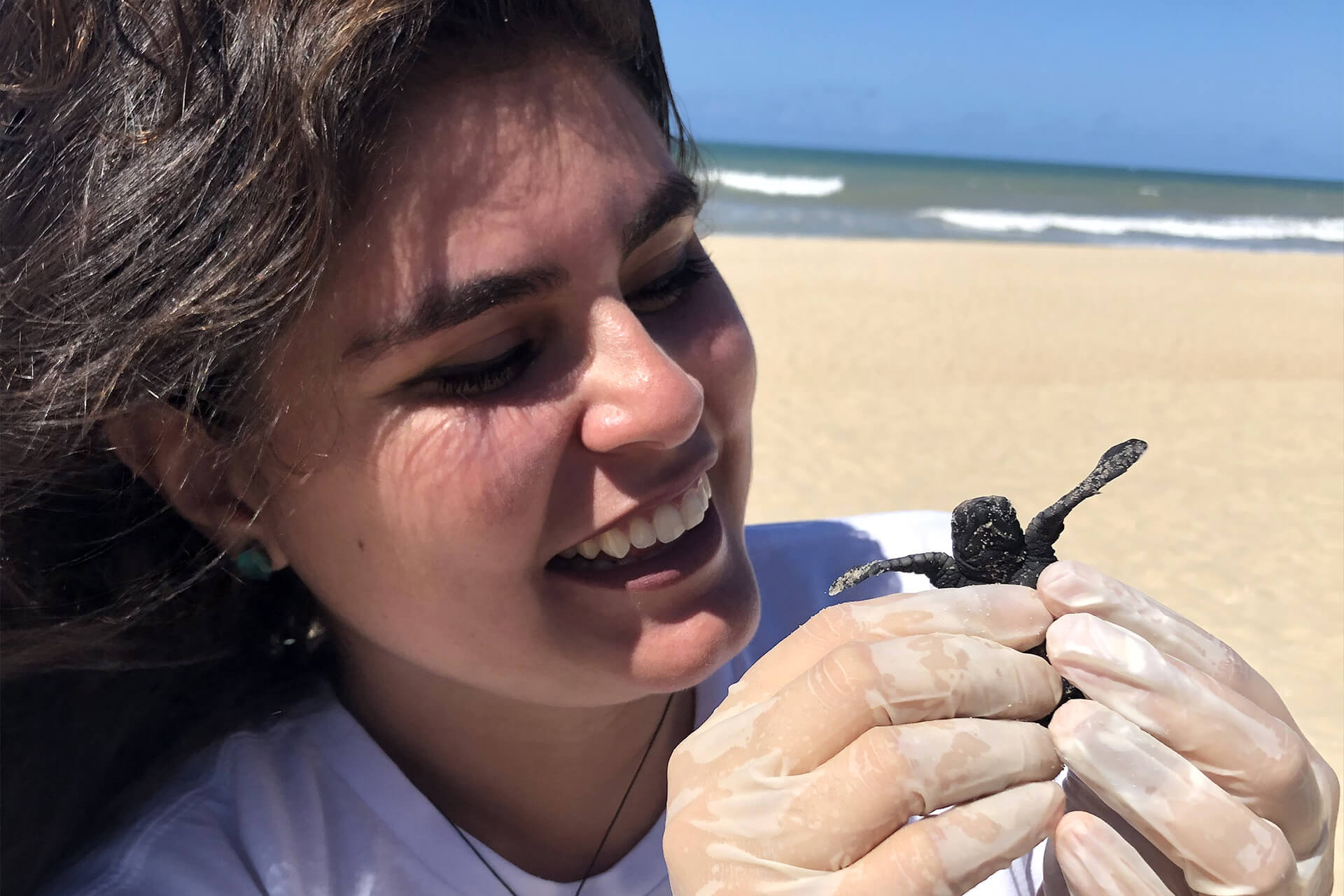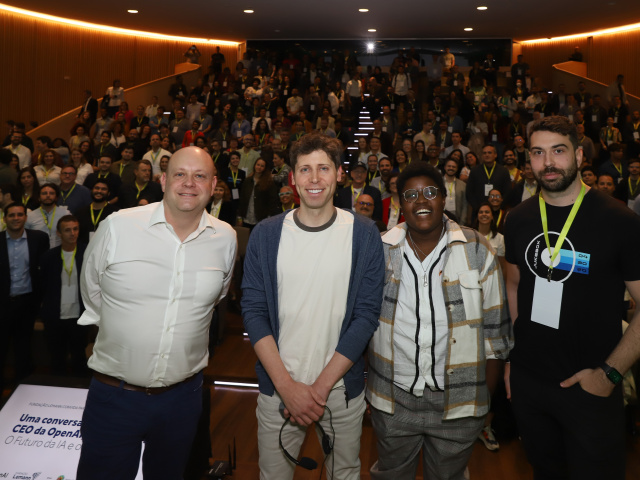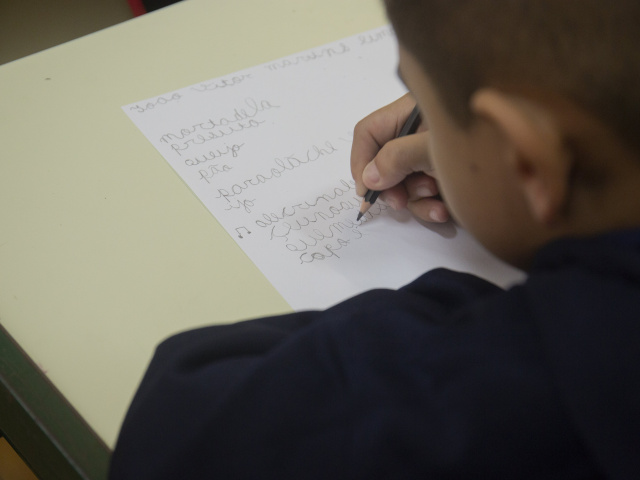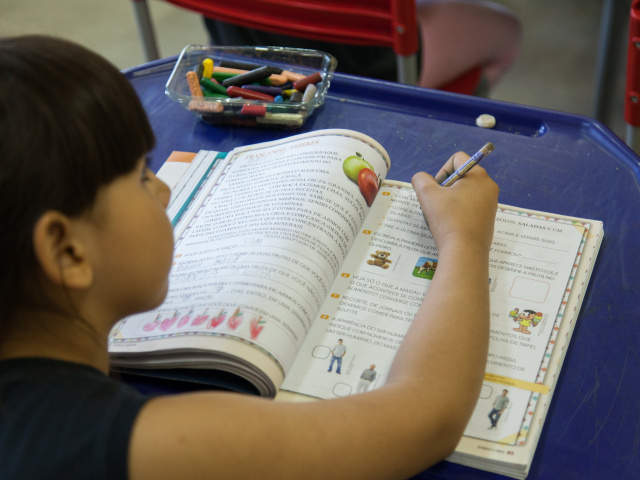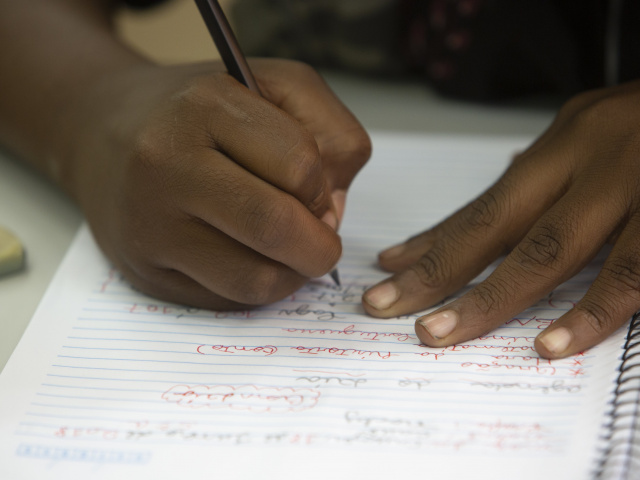Beatriz Azevêdo de Araújo may only be 27 years old, but the Brazilian environmental lawyer has already rescued baby sea turtles, marched on pollution-spewing power plants, attended seven UN conferences, and founded an environmental justice organization.
Araújo, who heads off to Oxford University in the fall to earn a Master’s in Public Policy, is the recipient of the esteemed Chevening Scholarship. She was personally selected by the British Embassy for the scholarship, which is partially funded by the Lemann Foundation.
Growing up in Ceará, one of Brazil’s least developed states that is prone to droughts and desertification, Araújo is determined to protect the environment of the place that made her who she was.
“I always think, ‘I have to come back here,’ because the kind of impact I want to create is not for other people,” said Araújo, who grew up in the capital city of Fortaleza. “It’s for my people.”
The Lemann Foundation sat down with Araújo to find out more about her formative years, her take on the environmental issues facing Brazil today, and her future plans.
Q. How did growing up in Ceará affect who you are?
A. Growing up here made me develop a sense of where I come from. It’s a very strong local culture, and we have an understanding of who we are, and this sense of being from Ceará.
Q. What’s it like there?
A. It’s warm. There is the hot sun and wind and all the beautiful beaches, but it's also warm because the people are really warm and welcoming. We laugh about everything and we’re known for our sense of humor. We laugh about the good things and bad things. We make fun of ourselves. We are one of the least developed states. It’s the way we deal with things so we can always keep our spirits up
Also, everyone here works really hard. We’re very hardworking people. For example, the people who do the best in our national version of the SATs people and get into the best universities are people from here. We have a really good education system.
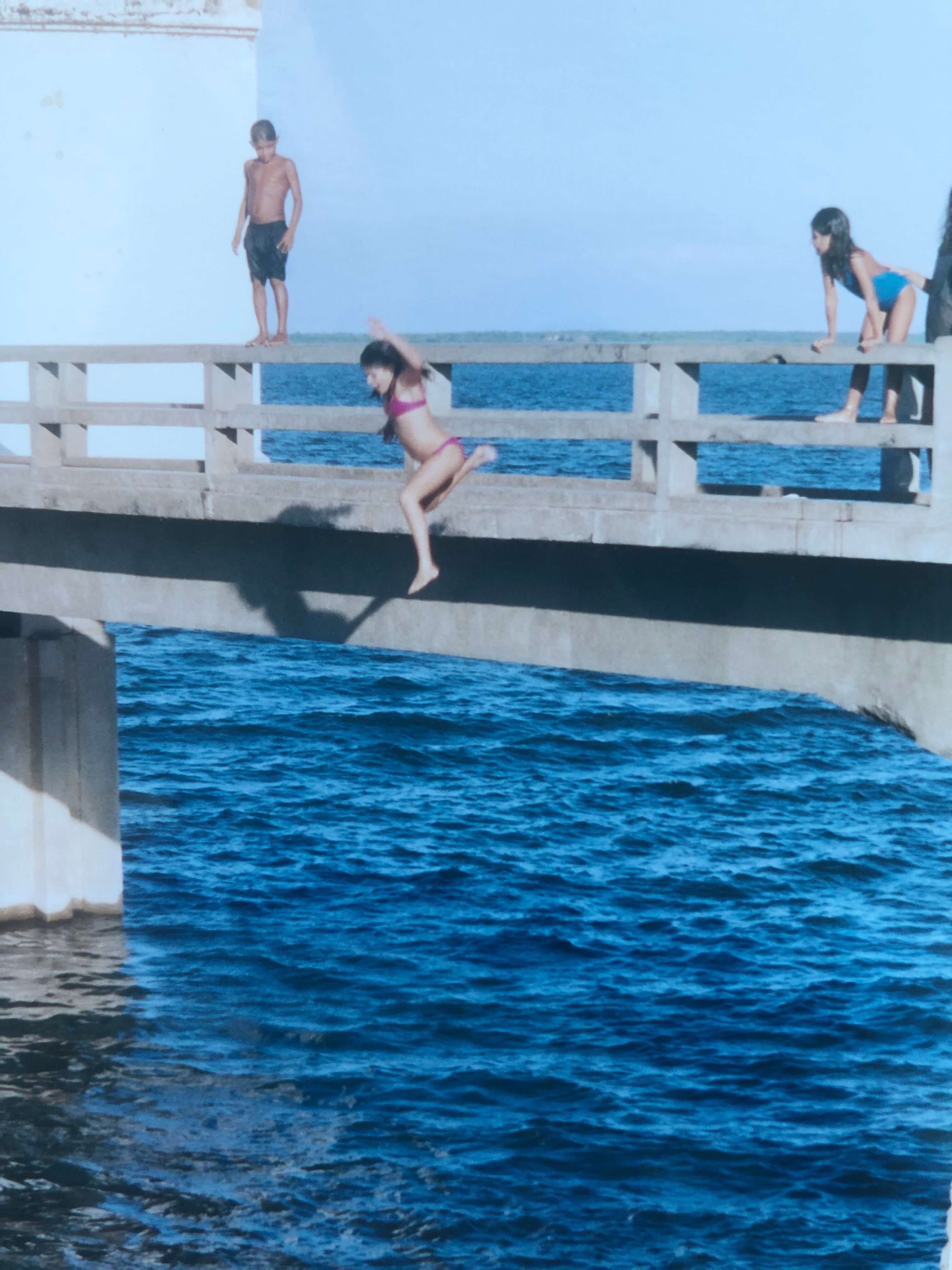
Q. Looking back, is there anything in particular that made you have such a strong concern for the environment?
A. In the Northeast, it’s very dry and semi-arid. Growing up, I always heard about droughts and environmental problems affecting people in the countryside. I remember as a kid when the reservoir was full, I would jump into the water from the pier. But sometimes for long periods it was dry and the water didn’t even reach the pier and we couldn’t swim.
It made me realize environmental problems do affect people and sometimes it’s the people who are the most affected who have the least ability to cope with the negative impacts.
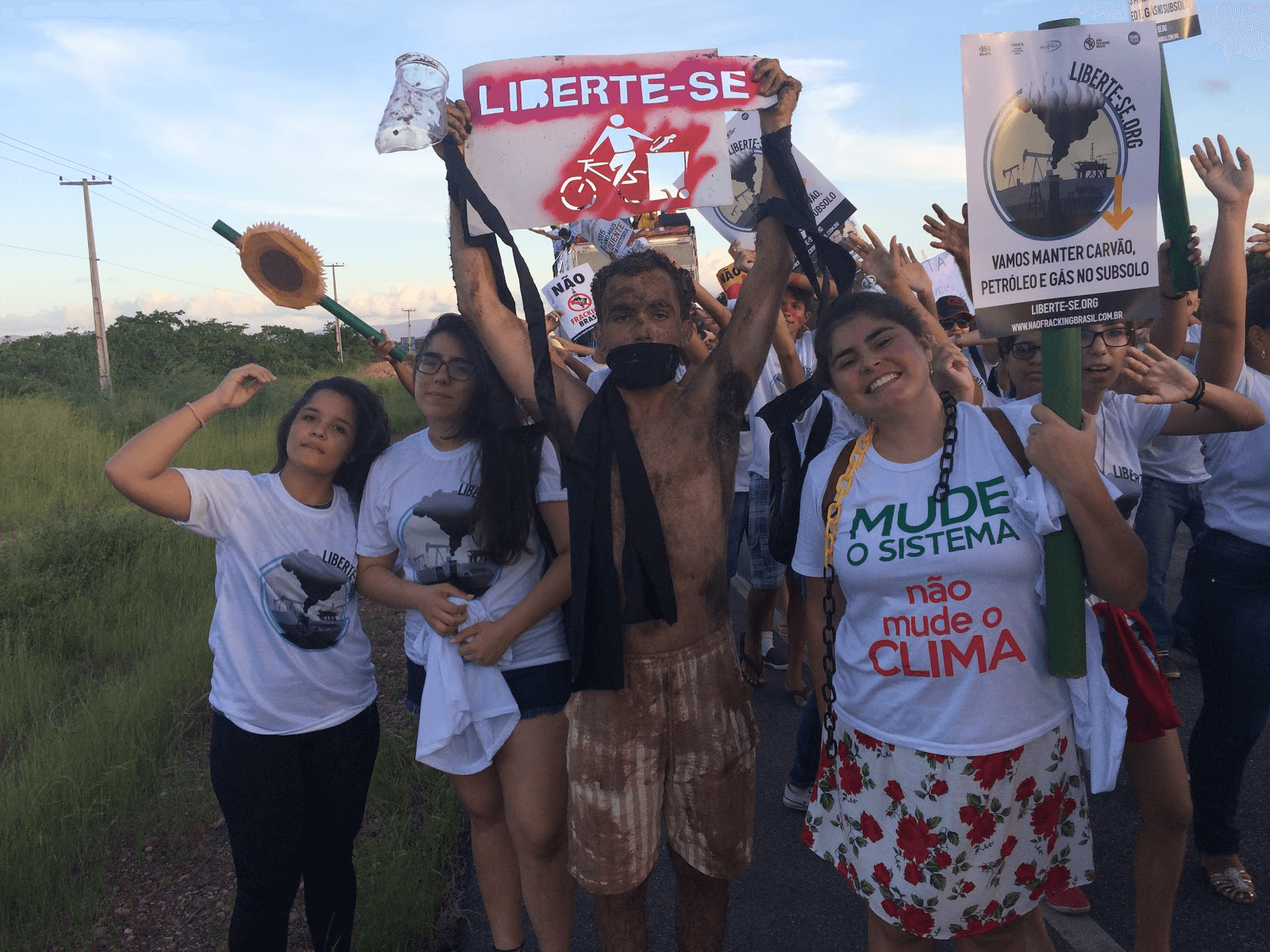
Q. You have been out there as a protestor advocating for more environmental protections.
As an activist, I’ve been to a thermal-power plant to protest burning coal and gas. I have seen the impact that type of energy creates in communities around it. People were saying their babies in the crib were full of coal because coal seeps into the houses. They would touch a piece of furniture and when they lifted their hand it was full of coal dust.
It made me realize these plants are not only bad for the environment. They’re even worse for people who have to cope with problems these things generate.
Q. Why have you chosen to go the Public Policy route?
A. I realized I was trying to solve the issue at the endpoint instead of further upstream. When a coal or gas plant comes to a state, it was already decided it was coming here. When people are not able to have easy access to solar energy, for example, it’s not because they don't want to. It’s because the federal or local government is not giving people enough help to have access to clean energy. We have the Amazon rainforest. We have lots of renewable energy potential and we’re not using it. We’re still giving subsidies and opening thermo-power plants here.
From my experience in civil society, I realized I could do more from a public policy perspective. Inside an NGO you can impact a certain number of people. But when you’re making public policy, you can impact the whole of society. I want to create solutions for the environmental crisis the world is facing right now.
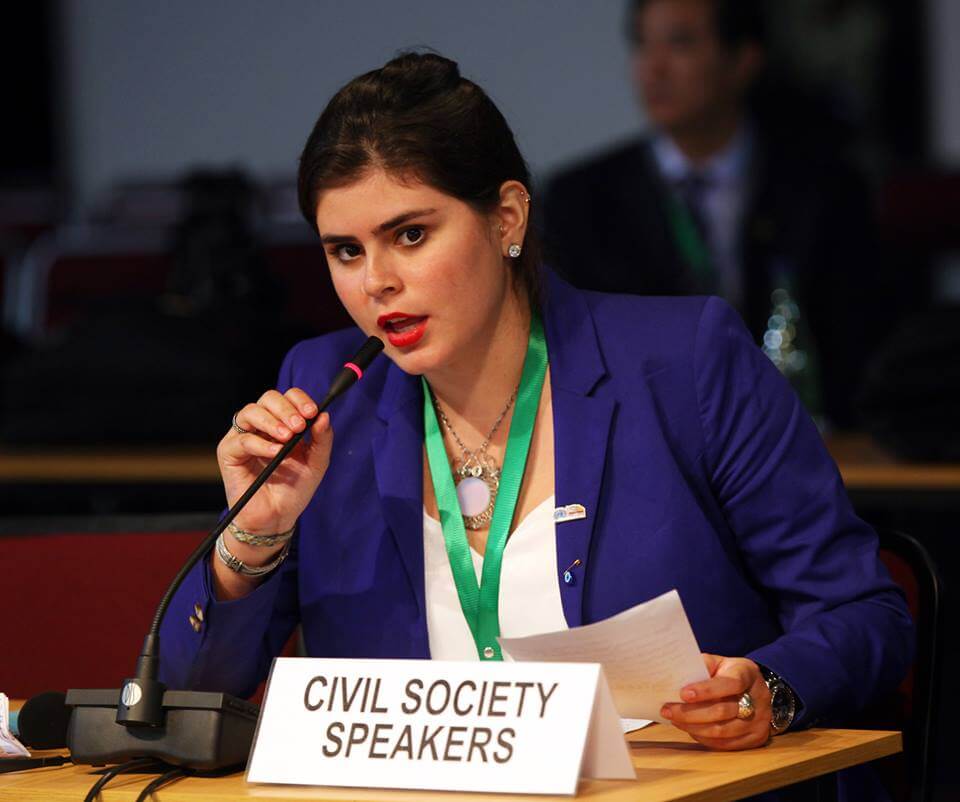
Q. How have your experiences with the UN shaped your worldview?
A. I would go to international negotiations which underscored the severity of the problem and then I would come home and ask myself, ‘Why is no one talking about this? Why isn’t this reaching people on the ground?’
Being on the ground made me realize the impact these policies have on people and I wanted to be more strategic. How could I use my energy to help even more people and the environment in my country?
Q. Trying to stop global warming sometimes seems like such an insurmountable problem. Do you ever find it hard to keep up hope?
A. At first, when I got the full picture and fully understood how fast things are deteriorating and how slow political action is, my first reaction was despair. I spent a lot of time being very desperate thinking the world as we know it was going to end.
But then it also became a spiritual path in a way. When I understood it wasn’t about me. It wasn’t even about the human race. Because the planet is going to continue turning with or without us. Things are going to happen like it or not or think it’s correct. If I spent a lot of energy being desperate, it would prevent me from using my energy for something constructive.
Q. Do you think the world will come around to a consensus about global warming?
A. The world changes fast. Look at COVID. Scientists have been talking about a pandemic for a long time, as they have the climate crisis. Many people never thought it would hit as hard as it did. We never know how things are going to unfold
Sometimes big changes happen from one day to another. I don't know if change is going to happen fast enough.
But what if something changes and we need to translate political will into action? It will happen when the climate crisis begins causing impacts that are big enough for people to actually pay attention. When that happens, someone needs to be prepared with the answers. We need people who are prepared to transition our society into something more sustainable.
I need to study and to be prepared with the answers when the time comes for me to do something. Because the solutions are out there. It’s viable to maintain a livable planet for future generations. There are solutions. We know the answers. Unfortunately, these answers are not being translated into political action from the public and private sector fast enough.
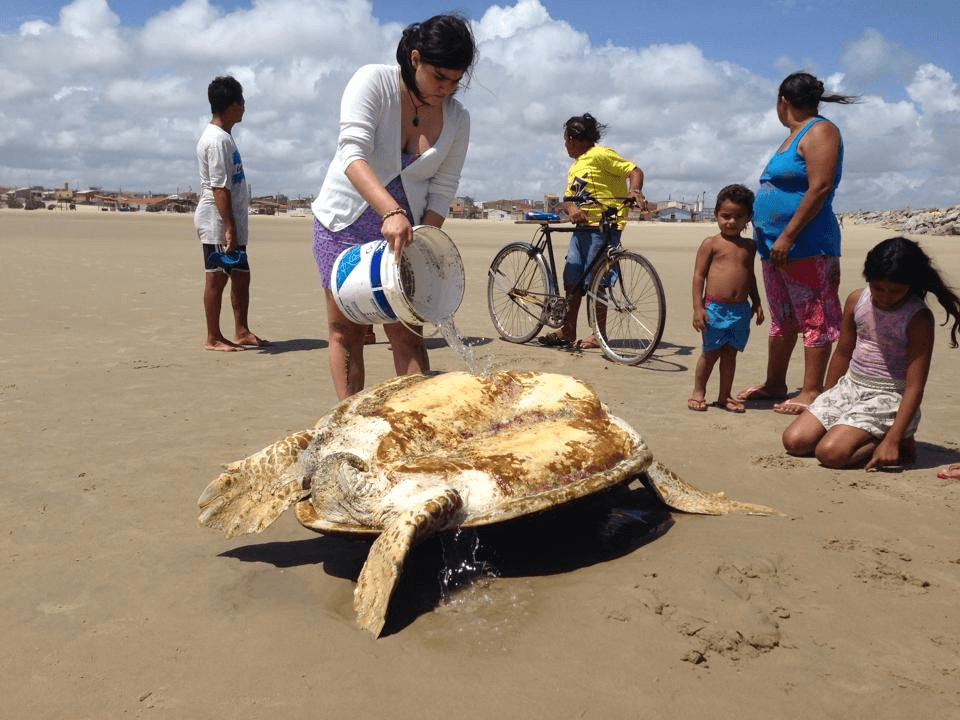
Q. If you were in a position where you could wave a wand and make some major, immediate environmental policy changes, what would they be?
A. There are three things I would implement.
The most urgent is to stop deforestation in the Amazon rainforest. It needs to stop now and it’s totally possible. You only have to prevent something from happening. It can be done in a number of ways. We can use satellite imagery as we do know where deforestation is taking place. The best way to do it is by using mechanisms we already have in terms of federal policy and also giving land titles to indigenous people for protected areas.
The second would be to create programs so people can have access to decentralized renewable energies like solar and wind. Giving poor people access to solar panels in their houses prevents two problems. In my state, one of the main drivers of deforestation in the countryside is people using wood from the forest as an energy source because they have no electric energy in their houses. You solve that problem if you give people autonomous electric energy. Poor people in vulnerable communities with access to electricity from solar or wind energy can also be connected to the Internet and be connected to information.
Third would be defunding fossil fuels. We need to stop subsidizing fossil fuels and have the state get behind the transition to renewable energy.
Q. What advice would you give to someone looking for changes they could make in their own individual lives to minimize their carbon footprint?
A. Eat less meat. You don’t have to be a vegetarian or vegan and I know most people are not ready to undertake such a big change. If you eat meat every day, try to reduce how much you eat.
Also, shop local from the people who are producing around you. Family agriculture. Buy food from the people who produce it locally without pesticides.
I would also say, try not to buy as much clothing as usual. Thrift stores and second-hand shops are a great option. When you do shop, try to avoid buying things wrapped in plastic. Go out with your own spoon, fork, cup, and a reusable bag instead of using plastic utensils and bags. Bike instead of drive, when possible. Change the fuel you use for your car to something more sustainable. Minor changes can make a difference if everyone undertakes these changes.
Last, I would say, join a collective that supports the cause. These groups need funding, donations, or volunteer hours. If we want to promote social change in time for an apocalypse not to happen, we do need collective action. We need more people caring about and amplifying this issue.
Q. How do you think the experience of studying Public Policy at Oxford will help you help your state and your country?
A. What attracted me about the MPP program was its very practical focus on building concrete solutions. Oxford is a center of excellence and one of the best universities in the world. I can try and bring these solutions back home and at the same time use our local knowledge so these ideas can be implementable. A theory won’t work without knowledge of reality and listening to people whose lives are going to be affected.
Besides the knowledge, there’s the international network. We do know the potential is here in Brazil. We have biodiversity, we have the forest, the energy, but the money sometimes it’s not here. It’s important to have connections in Europe and other parts of the world to bring investment and funding especially for civil society or very progressive causes that it may be difficult to find local funding for.
Q. What was your reaction first, when you found out you got into Oxford, and second when you found out you won the Chevening-Lemann Scholarship?
A. It was crazy. Getting into Oxford seemed so distant, so unachievable. So when I found out I got in I started crying and calling my mom and dad and texting all my friends on WhatsApp and telling people I got it.
Then waiting to hear about the scholarship, I thought I was going to die waiting to find out. I was obsessed, looking at my phone every two minutes checking for the email from Chevening. When I found out I got it, I just started laughing and honestly saying thank G-d this happened because I wouldn’t be able to go if I didn't get the scholarship.
Note: Follow Beatriz on Instagram @biaclimatica
About Chevening
Chevening (www.chevening.org) is the UK government’s international scholarship programme aimed at developing global leaders. Funded by the Foreign and Commonwealth Office (FCO) and partner organisations, Chevening offers two types of award – Chevening Scholarships and Chevening Fellowships – the recipients of which are personally selected by British embassies and high commissions throughout the world.
Chevening offers a unique opportunity for future leaders, influencers, and decision-makers from all over the world to develop professionally and academically, network extensively, experience UK culture, and build lasting positive relationships with the UK. To date, the Lemann Foundation has supported six Chevening scholars.
About the Lemann Foundation
Since its birth in 2002, the Lemann Foundation has been working to advance Brazil’s development with equity by unlocking the potential of its children and future leaders.
Founded by self-made Brazilian entrepreneur and “business-class hero,” Jorge Paulo Lemann, the family foundation reverses inequality in Brazil at scale on two fronts: education and leadership. Lemann’s mission is to guarantee all children a high-quality public education no matter what their background and to support future leaders committed to making Brazil a more just and equal place.
“I always think, ‘I have to come back here,’ because the kind of impact I want to create is not for other people. It’s for my people.”
